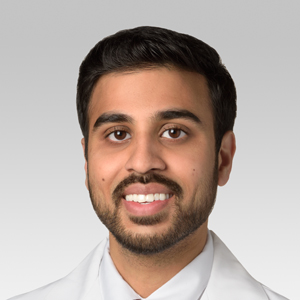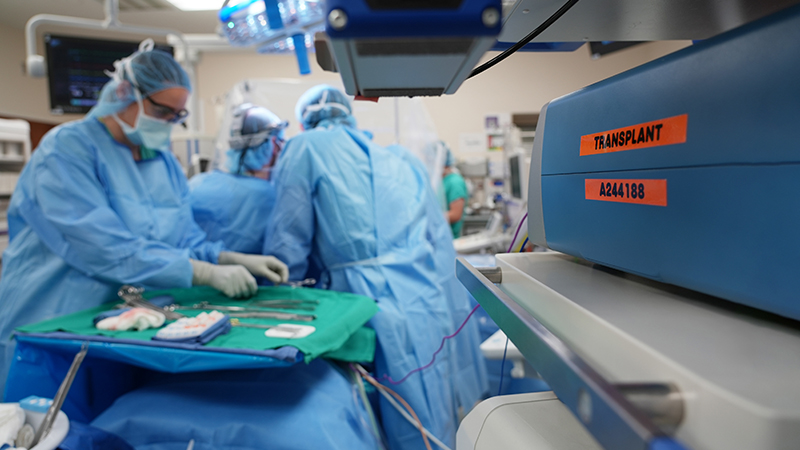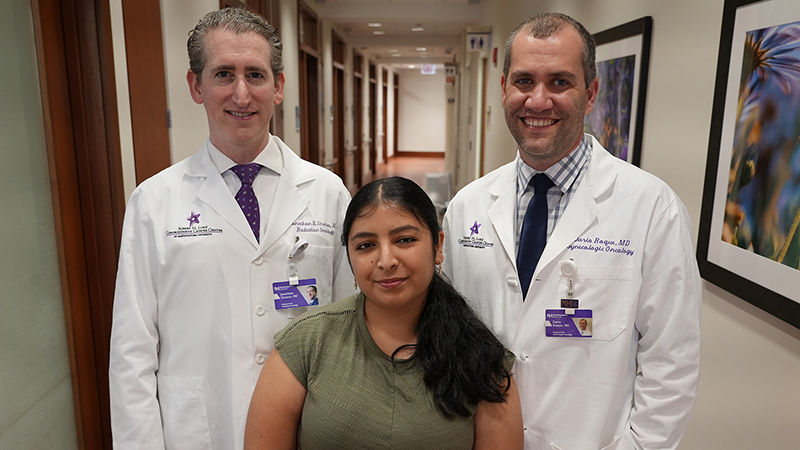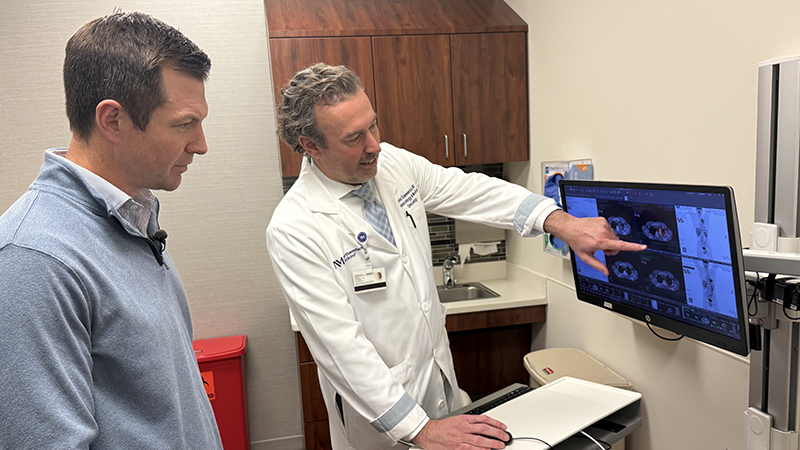A Couple Diagnosed With 2 Different Cancers Gets Treated Together
Proton Therapy Is a Precise Option
Published November 2022
Peggy Hessling and Don Engel both went to Tinley Park High School in Illinois and graduated in the class of 1972. The two knew of each other in high school, but only as acquaintances. Little did they know that nearly 50 years later, sparks would fly — and they would be diagnosed with cancer at the same time and treated at the same place, Northwestern Medicine Proton Center, with back-to-back appointments.
Peggy and Don’s story started in 2016 when the two met again at a mutual high school friend’s party. Each had been married and divorced, and moved around in the process. Don was visiting from Indianapolis after living in California for 30 years and Peggy was living in Illinois.
“I didn’t even want to go to this party. I had to work at 5 am the next morning,” recalls Peggy. “I told my friend that I was leaving by 10 pm and no one was going to stop me.”
Turns out, something did stop her — Don. They hit it off and talked for most of the night.
“It was like a love story after that,” says Don who now lives with Peggy in New Lenox, Illinois.
In Sickness and In Health
In the middle of their courtship, Don got a report from his primary care doctor that his prostate-specific antigen (PSA) level had escalated to 9.2 and that he needed to see a urologist. After more testing, the urologist confirmed that Don had prostate cancer and gave him three options: surgery, photon radiation therapy or proton radiation therapy. Don researched all three options and chose proton therapy. His next move was calling the Northwestern Medicine Proton Center for an appointment. At the Proton Center, he met with Radiation Oncologist Adil S. Akthar, MD, and underwent more testing. Based on those results, Dr. Akthar recommended daily proton radiation treatment for 28 days.Months before Don’s PSA test, Peggy noticed a lump at her jawline by her ear. She thought it was a salivary gland stone and wasn’t that concerned. Plus, she was distracted by a spine surgery and her orthopaedic surgeon said she would be in a neck brace following surgery. Detecting the cause of the lump on her neck would have to wait until the brace was removed.
After her spine surgery recovery, Peggy’s neck lump had grown considerably. She happened to show it to Dr. Akthar while at one of Don’s pre-treatment appointments at the Proton Center and asked if he handled head and neck cancers in case her scheduled biopsy turned out to be cancerous. He nodded and said, “Yes, please come see me.”
The biopsy revealed that Peggy also had cancer. “I was devastated,” she says.
Her oncologist recommended radiation treatment. Knowing about Don’s experience at the Northwestern Medicine Proton Center and having already met Dr. Akthar, she made an appointment with him.
“I felt this was the safest option for me,” she says.
According to Dr. Akthar, head and neck cancers and prostate cancers can be hard to treat because of how close they are to other organs. The benefit of proton radiation therapy is that it treats tumors with a precise dose of radiation that fits the shape of the tumor and stops at the tumor. This can help reduce the risk of side effects and minimize damage to healthy tissue around the tumor.
Treatment for Two
Peggy’s treatment schedule was almost the same as Don’s. It was daily proton radiation treatment for 33 days and the start date was a week from Don’s. The couple asked Dr. Akthar if their daily appointments could be scheduled close together to cut down on their travel time. Dr. Akthar and the scheduling team made it happen.
Proton therapy treats tumors with a precise dose of radiation.— Adil S. Akthar, MD
“We live about 45 minutes away from the Proton Center, so this saved us so much time,” says Don. “I have to commend the scheduling department. They did an incredible job. We were usually a half hour apart with our appointments. This is not something you want to go through, but if you have to, this is the place to do it.”
Dr. Akthar adds, “Our center was able to support Peggy and Don in a way that they could share this journey together despite the complex differences in their customized treatment plans for their respective cancers. This opportunity allowed them to have the optimal outcome both physically and emotionally during their treatment courses.”
What’s Next
Today, Peggy and Don are in remission and they are planning road trips in their RV with their new Yorkshire terrier puppy, Gino. They are also busy planning a party to celebrate their cancer survivorship, a friend’s new job and some friends who are retiring. After their cancer diagnoses and treatments, the couple is happy to finally be focusing on other things. “There’s lot of good stuff going on,” says Peggy.






